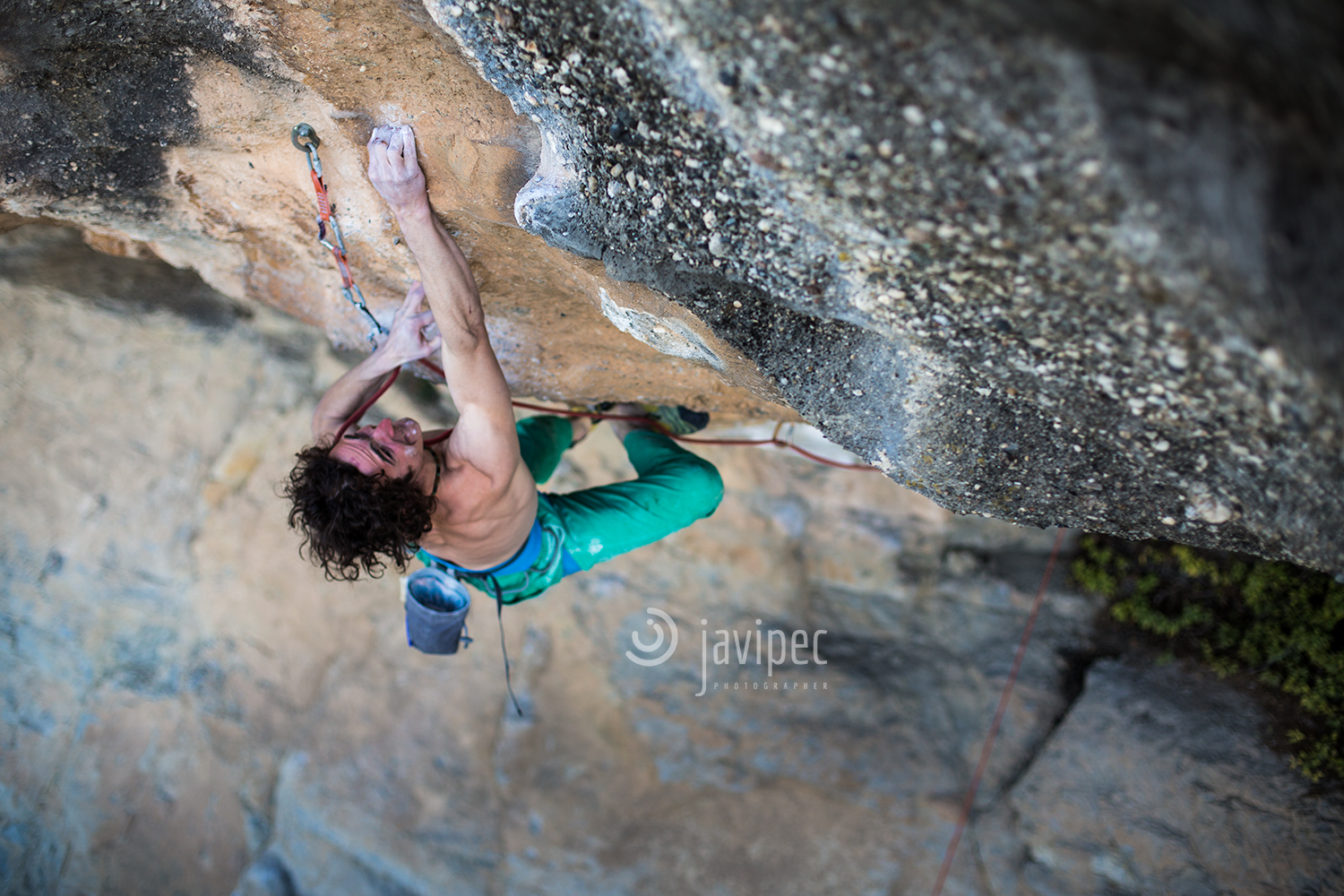Rockbusters' Blog Post
11/05/2021Climbing On-Sight
FEATURED ARTICLE
Among climbers attempting routes ON-SIGHT is considered the most valuable way to send a route. Basically, it means to lead a climb without any prior knowledge of the route, its particular moves, sequences, tricks, etc. Observation from the ground is allowed and commonly used.
On-sight is quite special as everyone has only one possibility for each route. Once you are on the rock there is no way back and falling means blowing your chances of on-sighting the route. Yes, it brings much more pressure to the game but the satisfaction when all clicks together, and you send something hard on-sight is very rewarding.
Sure, most of us are pure on-sighters who just tie ourselves to the rope, clip the quickdraws on the harness and start climbing. But there is much more to it than you would think. You can see the competition climbers studying the lead climbing route, picturing the moves, and imagining climbing it.

When talking to Adam Ondra about his on-sight attempts he says that he actually almost never feels like climbing on-sight. His ability to read the rock and see the moves, link the sections, discover all the rests, being able to believe and stick with his beta feels mostly like a climbing flash.
Climbing is the mix of these 3 elements. Mental and physical strength and technical abilities. In general, we believe the most important thing in climbing is your mind as when the head pushes body will follow. On the other hand, you can be as strong as you like, but you won't ever succeed if your head will always pulls the break. And for hard on-sight attempts, it is absolutely essential to be mentally 100% or more.

Here are Rockbusters' tips when attempting routes OS
Choosing the route:
- Choose the line that calls you and motivates you
- Forget about the grade, focus on enjoying climbing the line
- Spend time studying the route, holds, look for cruxes, and rests
- Divide them into shorter sections and link them together
- Try to memorize the route and imagine sending it
- Check all the potential dangers, objective, and subjective, and try to deal with them before you start climbing. When on rock your mind needs to be sharp, and you need to be dedicated to going for it
Preparation/concentration:
- Before starting, do the safety check, and choose the reliable belayer, .... you need to be 110% in the zone
- Repeat the route in your head
- Do not talk to others before you start
- Control breathing. Breathe deeply and slowly before you start
- Create a routine to get in the zone and light up the fire before you hop on the rock
When climbing:
- Move fast but do not rush, go step by step, focus on the next hold, next rest, …
- The first climb, then clip. Find a good and easy clipping position
- Stick with your beta as much as you can. Better to do the section fast and hard than get stuck searching for something that does not exist
- Open your eyes and be ready to flexibly adjust your beta. There may be something you did not see from the ground
- Stay calm in any situation. Learn to separate the pump of your arms from your brain
- Breathe. Learn to control your breathing. It helps your muscles and mind
- Keep going. You either move up or rest
- Believe and do not give up. Until you are in the air there is always a chance, better handholds, small rest, etc.
- Did you climb it? It was too easy. Try harder one
After the attempt:
- When succeeding have a moment and enjoy the glory and look for something harder
- When failing try to analyze and learn from your mistakes. The best way to learn is to fail but need to see the mistake and correct it next time. Think positively, it is not the end of the world, you are still climbing with your friends and that is what matters the most!
>> for ON-SIGHT and REDPOINT coaching see our sport climbing courses and trips here <<













